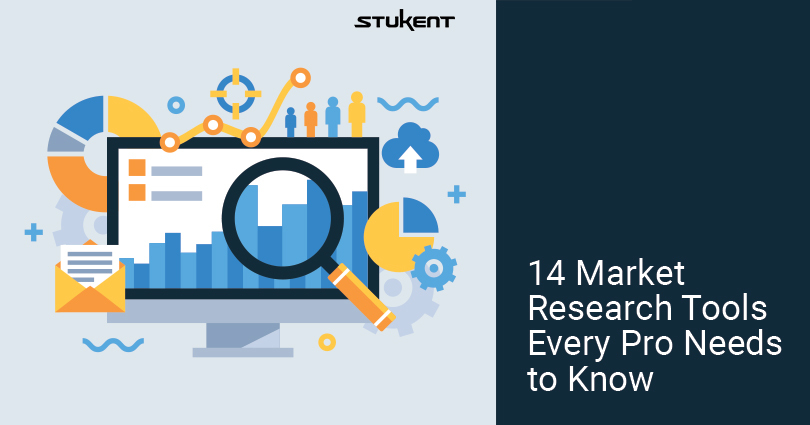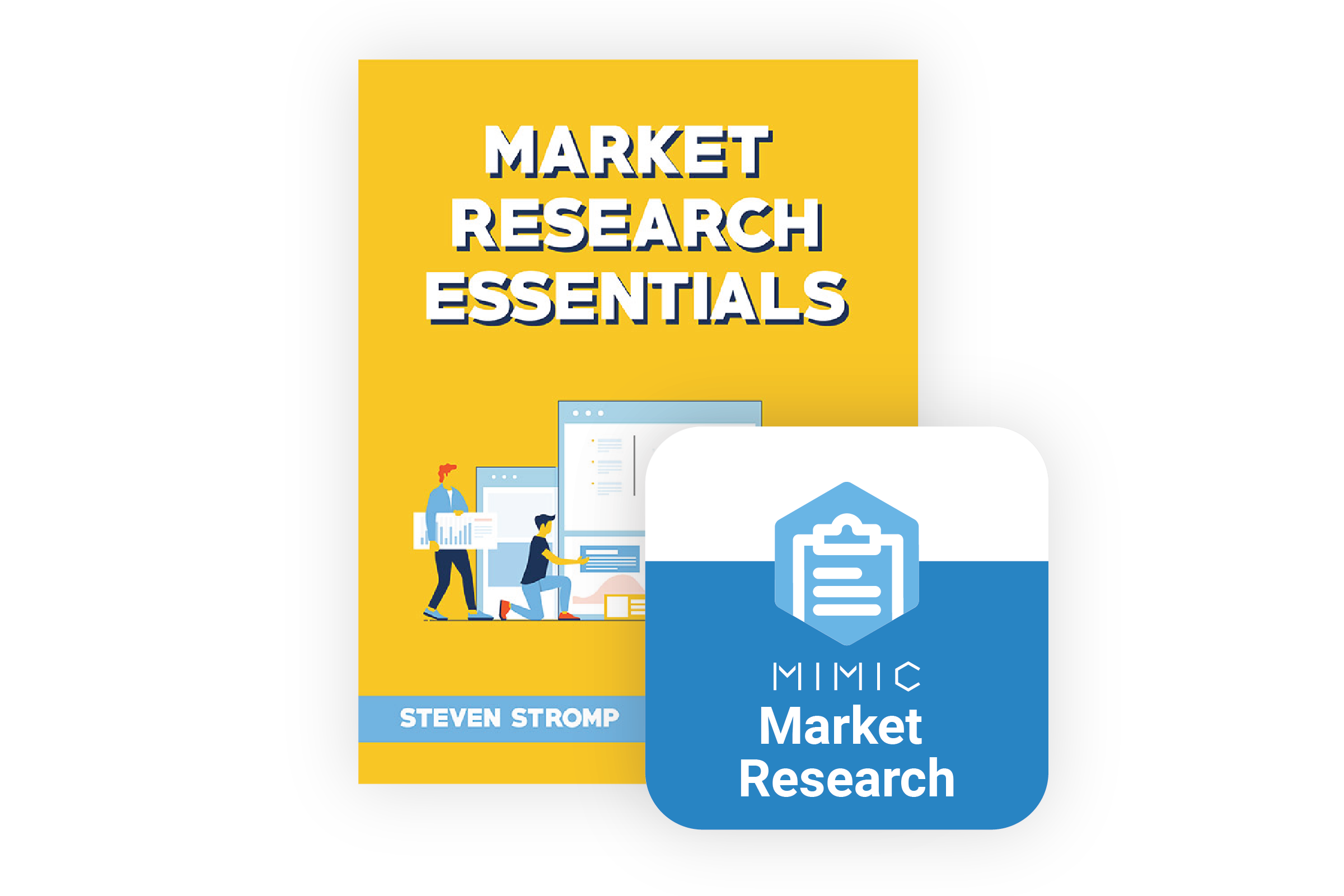Whether you’re still working on landing your first job or you’re a seasoned marketing professional, here are two truths that will either limit or propel your success, depending on how well you adhere to them:
1. Your job isn’t to find people who want to buy what you sell, it’s to produce and sell things people want to buy
2. The fundamentals of marketing are set in stone, but marketing tools are changing constantly
You can point to the line Henry Ford probably never said (“If I would’ve asked people what they wanted, they would have asked for faster horses”) or to the phenomenal success achieved by Apple, if you will, but both Ford and Jobs took things paying customers already wanted (transportation and communication) and gave them easier, quicker, more exciting ways to reach their goals.
Smart marketers do the same, and really smart marketers do the same thing better by staying abreast of the never-ending stream of tools that make modern market research possible.
We won’t mess with the fundamentals of marketing here—they’ve been serving businesses well for many, many years—but we will recommend 14 kick-butt tools that can make a savvy marketer’s job more effective.
Yes, these tools will evolve and others will challenge or replace them, but the critical bases they cover will remain unchanged. You can count on it.
The Fundamentals of Market Research
Here’s a huge problem with most marketing courses today: Textbooks are pretty well out-of-date by the time they’re printed. That means the instructor must sort through the content to salvage the accurate information and replace the rest with updated data.
Stukent’s digital textbook “Market Research Essentials” is updated at least twice each year. Instructors can request free access here.
14 Market Research Tools Every Pro Needs to Know
The following list is by no means exhaustive. It is meant to be only a sampling of the digital marketing tools we believe most valuable to the work. Many of these tools are highlighted in “Market Research Essentials.”
1. Ubersuggest: If you don’t want to shell out the fairly stiff subscription fee, but still want the benefits of a tool that can deliver plenty of competitive insight, check out this new addition to the market research tool chest. Ubersuggest is the brainchild of super-successful digital marketer Neil Patel, and he keeps stacking on the value. Keyword ideas, content ideas, a traffic analyser, SEO analyser, and more. You’ll be amazed at the value offered here. You can even get coaching from Patel and his staff (no additional charge).
2. SurveyMonkey: Like BuzzSumo, this SAS has been around for years … and keeps getting better. Over 20 million survey questions are fielded daily by survey takers via this popular platform. You not only get to create surveys and quizzes here, but the analytics capabilities are impressive. Integrate results with apps like Google Drive, Office 365, and Slack, or export data in csv, pdf, ppt, spss, or xls format. You can even accept payments via Stripe. SurveyMonkey is the grandparent of all online survey tools and should definitely be in the lineup when you are ready to find out what others think.
3. Search Engine Autocompletes: This one gets overlooked way too often. Whether you’re using Google Search or checking for a book on Amazon, the auto-fill function will begin to suggest results (assuming you’ve not blocked that feature) as you type. That’s the search engine’s way of helping you find what you want — but it’s also an excellent way to get real-time insight on what others are looking for. We don’t have insider information on search engine algorithms, but you can bet the currently most popular terms are being presented free of charge. No app needed. Just start searching and watch for the suggestions that pop up.
4. Keyword Researcher: If you like the idea of search engine autocompletes, but want to shift that concept into high gear, you’ll be thrilled with the Keyword Researcher tool from Clever Gizmos. Find long-tail keywords galore—not just to optimize content for SEO, but also to gain invaluable glimpses of exactly what your prospective customers and others are searching for. Find out how they complete searches beginning or ending with keywords important to you. It’s a gem of a tool and one most of your competitors probably haven’t even heard of. Try it free and buy it at a price easy to justify.
5. Google Trends: Google says it’s the ideal way to “explore what the world is searching,” and we’d have to agree. It’s a power-packed option that should be consulted during any serious marketing research deep dive. Google Trends tells you which keywords and topics are most popular and how many searches those interests are getting. You can even go back in time to view the trends twenty years prior. Why did the “market research” topic spike sharply in March of 2020? Which regions expressed the most interest? What are the related topics? Find out all of that with Google Trends.
6. Typeform: If SurveyMonkey isn’t quite your cup of tea, and you want your surveys to look like more fun than work, Typeform may be the solution you’re looking for. You’ll get the lighter Typeform feel, but you’ll lose the editing capability to make surveys mimic your own brand. However, certain customer demographics may react better to the change in mood. There’s one way to tell for sure: A/B testing. Both Typeform and SurveyMonkey give you a way to let the viewer decide.
7. Twitter Sentiment Search: Here’s another “trick” that’s not widely known or used … but should be. By finding out what others don’t like about certain topics or companies, you’re empowered with million-dollar information. The process is simple. Just type the keyword you want to explore into Twitter Search and follow it with “:(“ or the symbols for a frowny face.
8. iSpionage: You can benchmark your search engine marketing performance against competitors, see who is bidding on your keywords, monitor and analyze competitor ads, and get a close-up look at the competition’s PPC ad strategy with iSpionage. You can even set the tool to provide search engine results page (SERP) snapshots of your ads on a daily basis. If your company engages in paid search … check out this tool. It’s well worth the investment.
9. SEMrush: This platform bills itself as an “all-in-one marketing toolkit,” and while that may be stretching things a bit, SEMrush certainly is an impressive SAS platform. The dashboard provides options for domain analytics, keyword analytics, marketing insights, gap analysis, topic research, and more. If you can’t ferret out a pile of marketing research nuggets with SEMrush, you’re doing it wrong. To upgrade your digital marketing knowledge, sign into the SEMrush Academy to learn more about SEO fundamentals, content marketing, and other essential skills.
10. Qualtrics Survey Software: For a robust survey tool, Qualtrics may be unbeatable. The platform is simple enough to serve freelancers who want to launch a simple set of survey questions while also working for enterprise customers with complex research needs. To top it off, Qualtrics offers a free version (not a trial). It limits the user to 20 questions, but includes the ability to guide the flow of the survey via skip logic and branching options. Need one more reason to sign up? The reporting functions include statistical testing.
11: IBM SPSS: This is an advanced statistical analysis program for those who want to leverage machine learning, text analysis, open source extensibility, and integration with big data. For an example of how the power of SPSS can be harnessed, check out this page: Use IBM SPSS Statistics to analyze COVID-19 data. Methods include ad hoc analysis, testing a hypothesis, geospatial analysis, and predictions.
12. Prezi Present: This graphically engaging presentation software is a big step up from the traditional slide presentation. You can use motion, zoom reveal, and spatial relationships to capture and hold the attention of your audience. Prezi provides a generous set of templates specific to marketing, and your ability to organize content is enhanced with smart structures and easy navigation. The platform offers a free trial and reasonable pricing (students and educators get a healthy discount).
13. Canva: Guy Kawasaki’s social media manager, Peg Fitzpatrick, began using the Canva platform not long after it launched. She found the program so powerful and helpful that she didn’t want to share news about the find with anyone (even Kawasaki). She finally told him where the graphics were coming from, he loved the platform too, and Guy Kawasaki became Canva’s chief evangelist. Canva gives you the ability to create beautiful, functional, effective graphics — even if you’re not an artist. It’s way worth a look, and the free version doesn’t pull back much from a paid subscription.
14. Piktochart: This platform got its start and quickly grew an impressive user base in 2012, a time when infographics were exploding in popularity. Since then, Piktochart expanded to provide formats for banners, reports, and presentation graphics. The current platform provides the ability to edit and publish HTML files that can be embedded on a website. Users can also create flyers, posters, and social media graphics. Some prefer Canva. Some prefer Piktochart. You decide.
Market Research in 2020 and Beyond
These 14 tools may appear to be a daunting list of options, but the truth is there’s plenty we had to leave out. Platforms like Qualtrics, Eyeware, Hotjar, Sprout Social, and TweetDeck (to name just a few) could easily have made the list—but the suggestions above should be plenty to get you started. Most offer a selection of free, trial, and paid versions, so you can test the waters before committing to a subscription or purchase.
Marketing instructors are constantly looking for ways to engage their students. A quick, direct way to do that is via real-world market research tools.
Print textbooks can’t keep up with advancements, but the “Market Research Essentials” digital courseware is updated annually. When paired with the Mimic Market Research simulation, you can feel confident that your course is preparing students for life after graduation.
To find out more, get instructor access and see for yourself. The future of marketing isn’t just here … it’s here and changing often.







